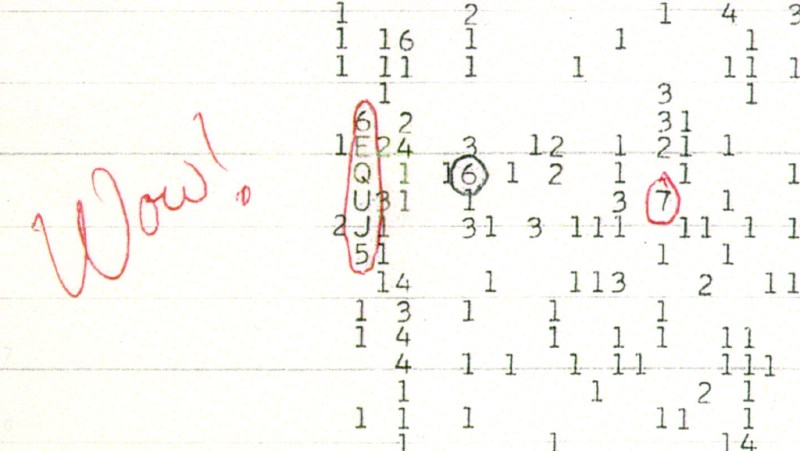As you might expect, the University of Puerto Rico at Arecibo has a fascination with radio signals from space. While doing research into the legendary “Wow! Signal” detected back in 1977, they realized that the burst was so strong that a small DIY radio telescope would be able to pick it up using modern software-defined radio (SDR) technology.
This realization gave birth to the Wow@Home project, an effort to document both the hardware and software necessary to pick up a Wow! class signal from your own backyard. The University reasons that if they can get a bunch of volunteers to build and operate these radio telescopes, the resulting data could help identify the source of the Wow! Signal — which they believe could be the result of some rare astrophysical event and not the product of Little Green Men.
Ultimately, this isn’t much different from many of the SDR-based homebrew radio telescopes we’ve covered over the years — get a dish, hook your RTL-SDR up to it, add in the appropriate filters and amplifiers, and point it to the sky. Technically, you’re now a radio astronomer. Congratulations. In this case, you don’t even have to figure out how to motorize your dish, as they recommend just pointing the antenna at a fixed position and let the rotation of the Earth to the work — a similar trick to how the legendary Arecibo Observatory itself worked.
The tricky part is collecting and analyzing what’s coming out of the receiver, and that’s where the team at Arecibo hope to make the most headway with their Wow@Home software. It also sounds like that’s where the work still needs to be done. The goal is to have a finished product in Python that can be deployed on the Raspberry Pi, which as an added bonus will “generate a live preview of the data in the style of the original Ohio State SETI project printouts.” Sounds cool to us.
If you’re interested in lending a hand, the team says they’re open to contributions from the community — specifically from those with experience RFI shielding, software GUIs, and general software development. We love seeing citizen science, so hopefully this project finds the assistance and the community it needs to flourish.
Thanks to [Mark Stevens] for the tip.

















It will never happen.
What will never happen? We’re detecting radio from space all the time.
I wonder if leftover hardware from the now defunct Electrosense project could be put to use?
I now have a spare raspi, rtl-sdr and a (probably not appropriate) antenna looki g for a purpose…
Aannd the crappy hackaday comment section strikes again and messes up where the reply is posted…
huh my first thought was that rejecting noise is such a challenge, you don’t really stand a chance at home.
but if you have a hundred sites all over the world then you can easily rule out nearby sources by correlating multiple sites
Honestly, with the state of things if I now saw communication of an alien species I’d keep it a secret.
This is not the time for such things.
I would just really not release the data. Even when I would find it hard because science should be neutral and embrace reality and ignore the nonsense of politics and media et cetera But we are in the context of the planet as it is, and the situation is too global.
I agree – if someone is convinced that they are the only person on the entire planet with definitive evidence of alien civilization communication, keeping quiet would be prudent.
I would go so far as to say that said person should probably consider applying a similar approach with respect to their various political and social observations.
It’s the only way to be safe from “the others.”
I think you misunderstand, it’s not about being safe, it’s about the planet being idiotic about it, and then that situation sticking for decades – if not longer.
And perhaps you just demonstrated a bit of the situation I refer to.
No, I understood what you were saying just fine.
But I don’t think I’m the one demonstrating your point …
This is literally the plot of X-Files 😂
Why worry? Few people would believe you, and fewer still would care. Signal source would likely be dozens of light years away and anything coming to visit would take hundreds of years.
What, specifically, is your concern? Worldwide panic? Unlikely; there are plenty of more worrisome things closer to home and more immediate. There are flat-Earthers and moon-landing-deniers, they get ignored.
We are talking about RL now not a TV show, so obviously ‘panic’ of the public would not be the issue (not even in the US, regardless what you might think of the recent ‘drones-over-Jersey’ amusement).
It’s what the politicians would do with the stuff and the media and the ‘pundits’ and the religious mofos and the ‘think tanks’, they would all try to be idiotic and use it for their silly little agendas, and to make money, and the public would eat up their nonsense and it would be anything but scientific but it would cause them to take over that field of science and piss all over it.
Right now you should keep the aforementioned away from any science as much as possible is my conclusion. You guys are of course free to not see it that way.
If I were the ‘Little Green Men’ I would chose any other channel than that of the hydrogen line.
For example the ‘water hole’ between 1.42 and 1.66GHz – that would make everybody aware that
it’s not an astronomical event but an intended transmission. And that is with much less ‘noise’.
The SETI@home client is open source. Using SDR as input would be possible (an has reportedly been done in the past, although I’ve never seen the source code for such input formats). I’d be willing to help. Seems like fun. Porting to python? No thanks.